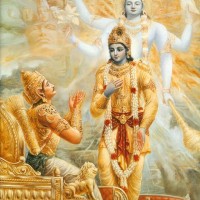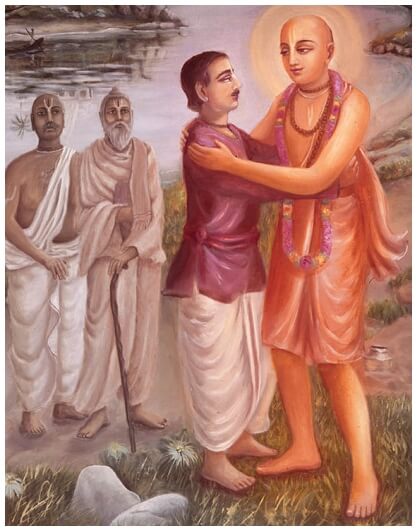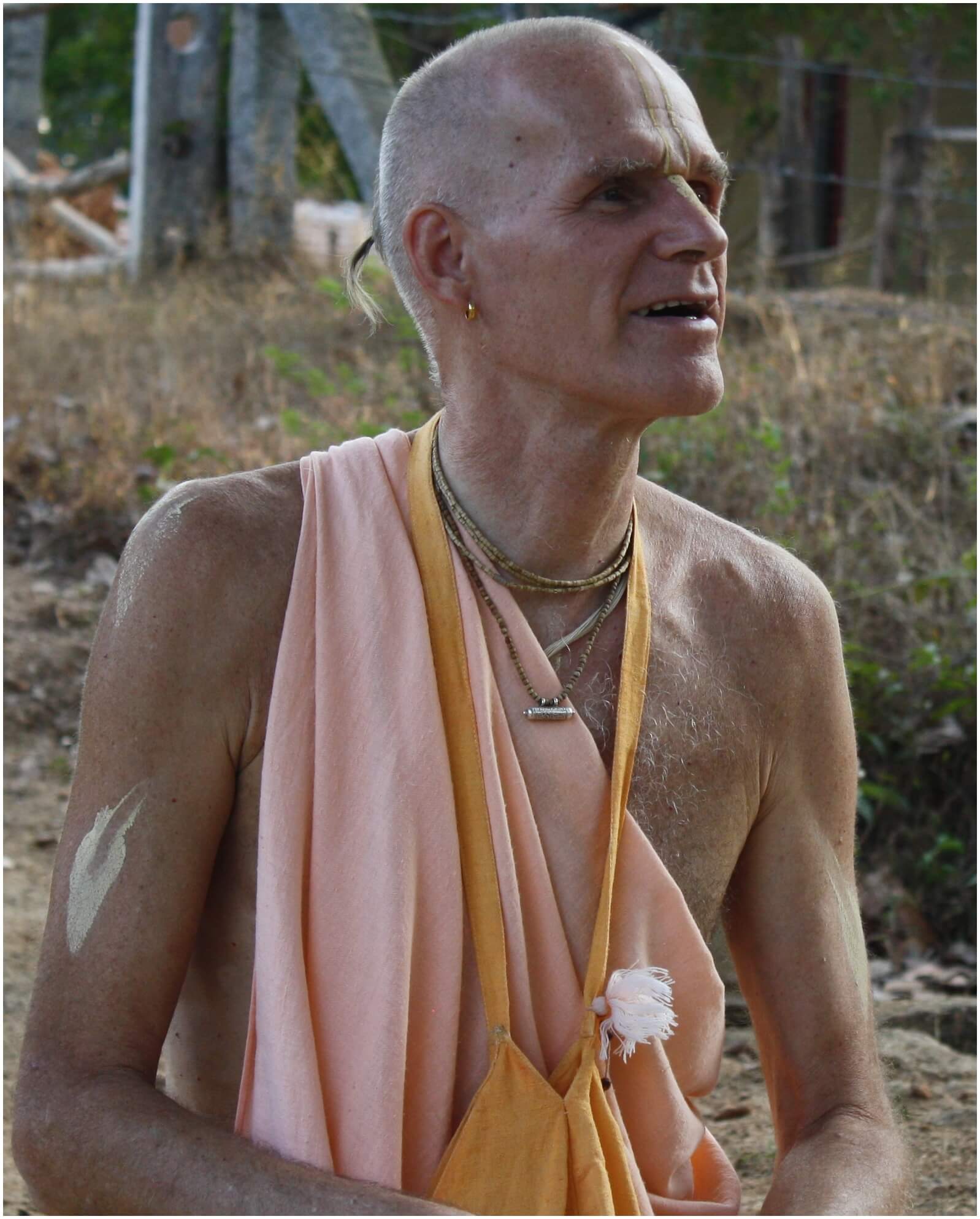Did Lord Caitanaya Mahaprabhu reject varnasrama?

Very often this argument is presented by some devotees, i.e., the position of Lord Caitanya giving less importance to varnasrama or even rejecting varnasrama, both in his conversation with Ramananda Raya and also in his conversation with the Tattvavadis when visiting South India. We need to analyze these discussions very closely.
Actually, Lord Caitanya did not reject varnasrama. Lord Caitanya is Lord Krsna Himself. He has established varnasrama. He cannot reject it; it is his own creation. The conversation in the context of Ramananda Raya and Lord Caitanya was what is the best activity that one can take up to actually become successful in life, to attain self-realization. So Ramananda Raya began by explaining the importance of varnasrama. Lord Caitanya considered that as externaland explained that actually there is something higher. So we need to understand that varnasrama is not an end in itself. In that conversation Lord Caitanya rejected varnasrama as being the ultimate goal and also as being the highest activity for attaining that higher goal. The higher goal, as we mentioned before, is to attain pure love of Krsna-Krsna prema. Varnasrama is a means to attain that and the process which will actually help one to develop pure love of Krsna is bhakti, or devotional service.

When we see it in this way, we should understand that Lord Caitanya rejected ordinary varnasrama as a means, let us say as the best means, and that’s why Srila Prabhupada spoke about daiva-varnasrama which has the element of devotional service. When that varnasrama is imbued with bhakti then that varnasrama, although normally seen as a material arrangement or material system, when covered with bhakti, becomes transformed as devotional activity. So Lord Caitanya’s purpose in the whole conversation was meant to bring out the bhakti element. That is how varnasrama, without bhakti, is simply a material activity and is generally motivated. So it is not the ultimate aim of life. It is not the best or the highest way by which one can attain bhakti for bhakti in itself or varnasrama imbued with bhakti is what will help us attain that highest goal.
In the conversation with the Tattvavadis in South India, the initial question raised by Lord Caitanya was related to the goal, being liberation, and the means to attain that goal, being varnasrama dharma. So Lord Caitanya naturally rejected it because the goal even within daiva varnasrama dharma is not liberation. The goal in daiva varnasrama ramains bhakti or to develop pure love for Krsna. So Lord Caitanya replied to the Tattvavadis that actually activities of bhakti are the best means to attain the highest goal, which is not liberation. The highest goal is to develop love for Krsna. So automatically liberation is included. For Vaisnavas that is actually liberation.
Srila Prabhupada mentions that the simple fact that Lord Caitanya accepted sannyasa, means he accepted varnasrama because sannyasa is part of the varnasrama system. So we should not prematurely or wrongly conclude that bhakti replaces varnasrama. No. Bhakti is always the primary, the highest activity and the highest goal. “Krsna bhakti nitya siddha” that is the eternal perfection of the living entity. We can begin developing this eternal activity of bhakti most ideally through the system of varnas and asrama, that’s the point. That is for those of us who are here, all of us who are here in this material world, it is very, very rare to find someone who can just be absorbed with pure devotional service and Srila Prabhupada gave the example of Haridas Thakur. Haridas Thakur was such a personality that he could chant 24 hours a day. He was not preoccupied with varnasrama and so also Lord Caitanya, He is the Personality who established and introduced the bhakti element which was missing earlier. Therefore, He was much less concerned about the externals.
So the other point to understand, as one of the conclusions from this, is that we should regard varnasrama in the same context that Lord Caitanya explained as being eternal. As Srila Prabhupada explains, varnasrama, “it is like a drama.” Externally, we take up these different roles of brahmana, ksatriya, vaisya, etc., in different asramas, but internally, we cultivate bhakti, that is the main thing. That is why Srila Prabhupada spoke about varnasrama as being a “classless society.” Classless refers to “no class”, that all of us are aspiring devotees of Krsna. We are all endeavoring to practice devotional service to attain the highest goal of pure devotional service or pure love for Krsna. So it is a tool as mentioned by Srila Prabhupada. It is as like a drama. We voluntarily agree to carry out this drama knowing fully well that ultimately, as Srila Prabhupada says ad Lord Caitanya also, that I’m not a brahmana, I’m not a ksatriya, I’m not a male nor a female or whatever I am none of these things which are external and temporary.

—-By His Holiness Bhakti Raghava Swami
Thank you…
This is an excerpt from “The Science of Daiva Varnasrama” by His Holiness Bhakti Raghava Swami, pages 29-31.
Order This Book Online!